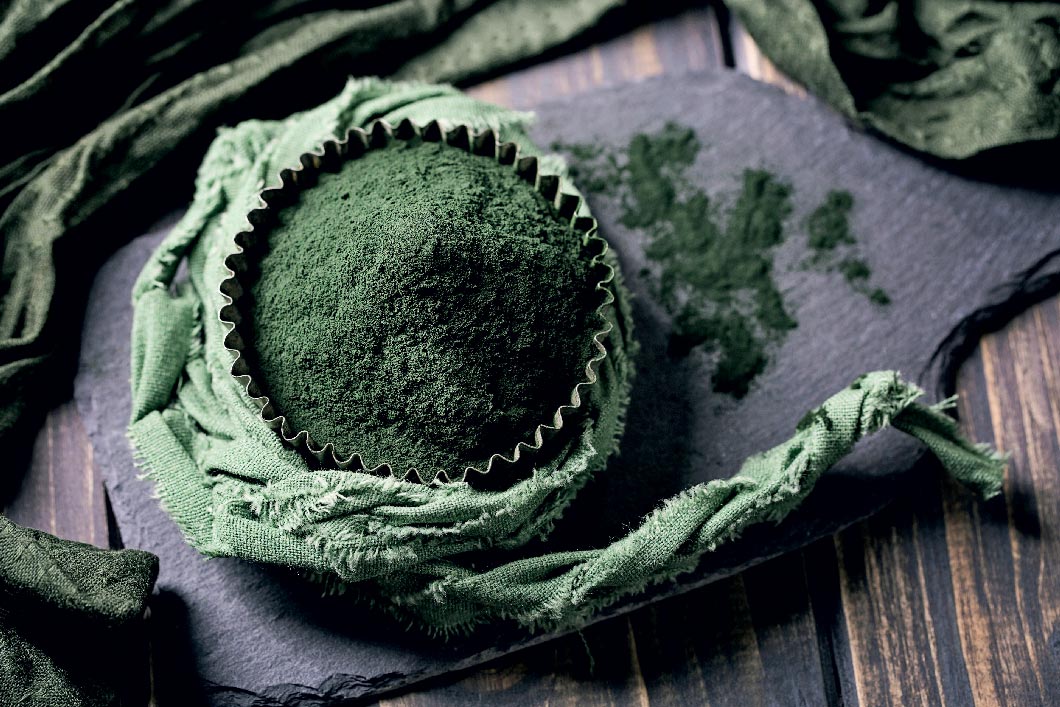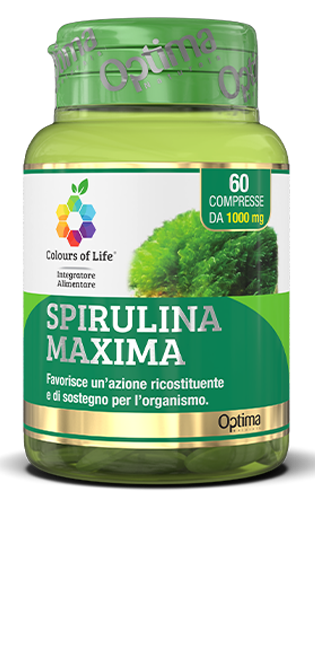BLOG
The superfood like no other

A superfood with unique properties
Spirulina is a spiral-shaped, dark blue-green microalgae, mainly found in tropical and subtropical areas. Its colour comes from the important presence of chlorophyll and phycocyanin, a pigment with antioxidant properties. Used for centuries by the Mayan civilisation and certain peoples of central Africa, this seaweed is now considered one of the most complete foods found in nature, making it a superfood.
As early as the early 1990s, NASA and the European Space Agency, after conducting studies, chose to use spirulina as a food source for astronauts on missions.
The nutrients of spirulina
Let's now find out which key nutrients spirulina contains to qualify as a 'super food'.
Spirulina seaweed is rich in protein (over 60%), mono- and polyunsaturated fats (omega 3 and omega 6), essential amino acids, including leucine, valine and isoleucine, vitamins, including B vitamins, beta-carotene (precursor of vitamin A), vitamin E, various minerals, including calcium, iron, phosphorus, magnesium, potassium and sodium.
Iron is present in significant amounts (around 28 mg per 100 g), far exceeding that of many foods considered to be rich in this mineral, such as bitter cocoa powder and liver.
The benefits of spirulina
Protection against oxidative damage
Chlorophyll, combined with the presence of vitamins and other substances such as phycocyanin, gives spirulina interesting antioxidant and anti-inflammatory properties that help protect the body from oxidative damage. Chlorophyll can thus help strengthen the immune system and prevent disease.
In general, the substances contained in spirulina support many important functions in the body: growth, energy production, haemoglobin synthesis.
Physical recovery for sportsmen and women
Sportsmen and women can benefit from dietary supplementation with spirulina algae for performance and general recovery, with studies indicating an improvement in strength and muscular endurance (2, sources and further information). It can be particularly useful for competitions and competitive sports.
Cholesterol reduction and blood glucose control
It can help reduce total cholesterol and in particular bad cholesterol or LDL and blood glucose (3, sources and further reading) and promote blood glucose control.
Spirulina can also help relieve aching joints and bones, relieve stress and anxiety, balance blood pressure and, due to the presence of the amino acid phenylalanine, activate the satiety hormone, thereby controlling appetite.
Due to its plant-based nature, this microalgae is suitable for those who follow vegetarian and vegan diets.
Sources and insights
- PubMed, The antioxidant, immunomodulatory, and anti-inflammatory activities of Spirulina: an overview
- PubMed, Ergogenic and antioxidant effects of spirulina supplementation in humans
- PubMed, Role of Spirulina in the Control of Glycemia and Lipidemia in Type 2 Diabetes Mellitus
The advice is for information only and should not replace medical assistance. Please consult a doctor or health care professional before trying any remedies.
Spirulina Maxima









 Optima Naturals S.r.l. ® Via Sempione 124, 21029 Vergiate (VA)
Optima Naturals S.r.l. ® Via Sempione 124, 21029 Vergiate (VA)